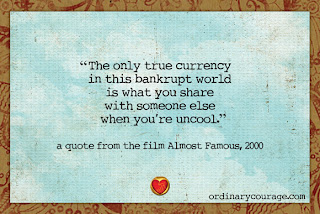 While I don't have TV in my apartment, I do have a subscription to People magazine. As soon as I opened the latest issue, I must admit, I was rather appalled at a two-page Dolce & Gabbana cologne ad that highlights a guy's "package"... (okay, I'm not going to pretend I don't like a little eye-candy but REALLY??? Maybe for an underwear ad... but cologne?!)... ->>>
While I don't have TV in my apartment, I do have a subscription to People magazine. As soon as I opened the latest issue, I must admit, I was rather appalled at a two-page Dolce & Gabbana cologne ad that highlights a guy's "package"... (okay, I'm not going to pretend I don't like a little eye-candy but REALLY??? Maybe for an underwear ad... but cologne?!)... ->>>...so I flip past and catch up on my celeb gossip and about half way through the mag, I was pleasantly surprised to see a two-page ad for KY (the sex lubricant) highlighting "America's Top Couple" winners with the following caption:
"What makes a couple stand out? For our annual content, we asked America to find that special relationship built on communication, trust, and intimacy. Out of thousands of submissions, this winning couple embraced all of those qualities and so much more."
At a time when casual sex, affairs, celebrity break-ups and countless other scenarios of low-moral-value are nothing short of glamorized, it is refreshing to see a well-known brand championing committment. KY could easily grab attention in any number of ways, being a sex product, but they chose not to - potentially to their detriment, considering how well "sex sells". When's the last time you heard "romantic, committed love-making sells"?!
Seeing this ad and other campaigns such as Dove's highly successful Real Beauty campaign (which, ironically enough, was the next to last ad in this issue - something I realized after I posted this!) give me a glimmer of hope that our future generations will get a different prominent message than the morally-devoid sexuality that permiates pop culture today.



